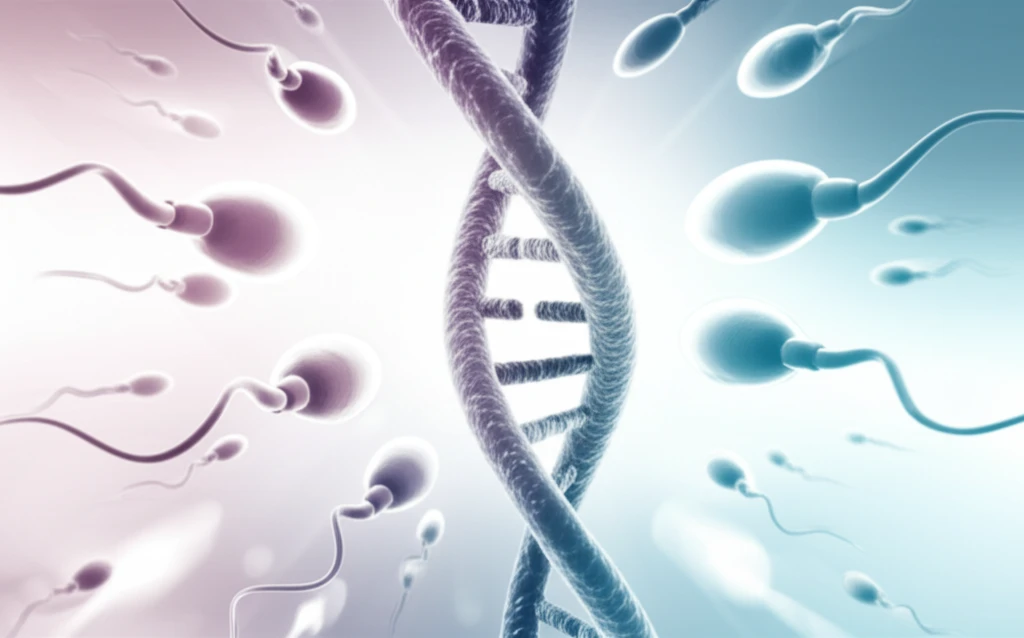
Decoding Male Infertility: New Insights into Genetic Causes and Potential Solutions
"Unraveling the Genetic Puzzle of Male Infertility: A Guide to Understanding the Latest Research and What It Means for You"
Male infertility, a condition affecting millions worldwide, can be a deeply personal and often challenging experience. While various factors contribute to this complex issue, the role of genetics is increasingly recognized as a significant piece of the puzzle. Recent studies are shedding light on the specific genes and genetic mutations that can lead to male infertility, opening new avenues for diagnosis and treatment.
This article delves into the emerging field of genetic research in male infertility, focusing on a specific condition known as Sertoli cell-only syndrome (SCOS). We will explore the latest findings, the implications for those affected, and the potential for future advancements. Our goal is to provide clear, accessible information, empowering you with knowledge and hope.
Understanding the genetic underpinnings of male infertility is crucial for developing effective strategies for diagnosis and treatment. This article aims to break down complex scientific concepts into understandable terms, providing insights for both individuals and healthcare professionals.
Sertoli Cell-Only Syndrome (SCOS): A Closer Look at the Genetic Factors

Sertoli cell-only syndrome (SCOS) is a condition characterized by the absence of sperm-producing cells in the testes. This results in azoospermia, the complete lack of sperm in the ejaculate, and is a significant cause of male infertility. While the reasons behind SCOS are varied, genetic factors are emerging as a key area of investigation. Recent research has focused on identifying the specific genes involved and understanding how these genes contribute to the development of SCOS.
- HOXD9 and SYCE1 Genes: Deletions and amplifications were found in genes such as HOXD9 and SYCE1 in patients with SCOS.
- Autosomal Gene Defects: Mutations in genes located on autosomes (non-sex chromosomes) are linked to SCOS.
- Clinical Significance: Further investigations are expected to clarify the clinical implications and mechanisms.
- Impact on Spermatogenesis: How changes in gene dosage affect protein levels and spermatogenesis requires further study.
Looking Ahead: The Future of Genetic Research in Male Infertility
The study of genetics in male infertility is a rapidly evolving field, with new discoveries emerging regularly. As researchers continue to identify the genes and mechanisms involved, the future holds the promise of improved diagnostics, more effective treatments, and a better understanding of the complexities of male reproductive health. For those facing the challenges of infertility, ongoing research offers hope for new solutions and a path toward building the families they desire.
